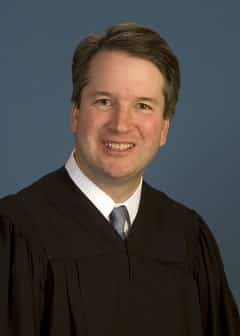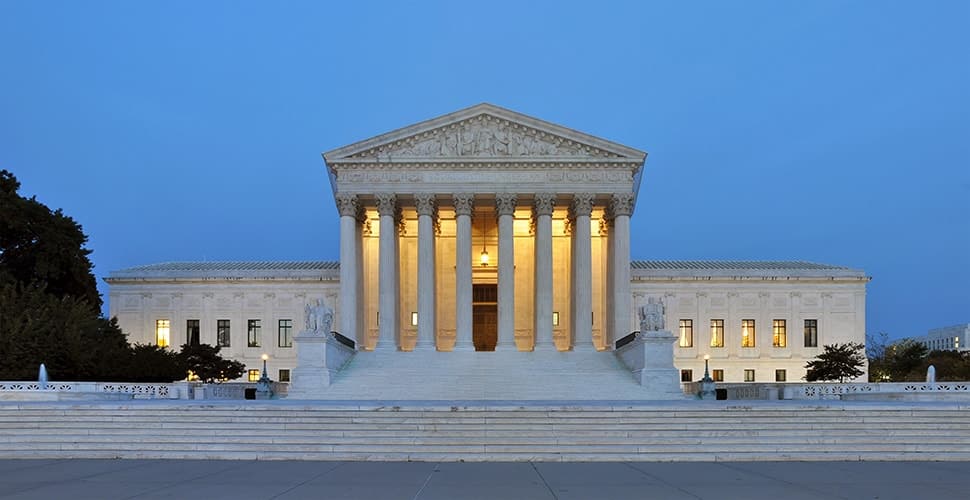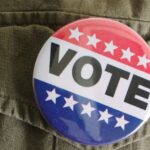For those who enforce the law, the appointment of a new Justice on the Supreme Court, the highest court in the land and final authority on the laws of congress and the constitution, can have an impact that lasts years. With the retirement of Justice Anthony Kennedy who often provided the deciding vote in Supreme Court cases, his replacement will influence whether the interpretation of the nation’s laws will lean more conservative, moderate, or liberal.
President Donald Trump has selected federal appeals court judge Brett Kavanaugh as his nominee, starting what should prove to be a contested nomination process if his 2006 appeals court confirmation is any indication. Both liberals and conservatives are learning more about Judge Kavanaugh to anticipate how he will rule on key cases that could determine the upholding or overturning of existing laws.
Background
Kavanaugh has some history in common with current Supreme Court Justices, attending Yale Law (as did current Justices Clarence Thomas, Sonya Sotomayor, and Samuel Alito), clerking for retiring Justice Kennedy, and serving on the DC circuit court (as did current Justices John Roberts, Ruth Bader Ginsberg, and Thomas). But as evidenced by the differing positions of those justices, it’s necessary to look at his previous actions and statements to learn more about what type of Justice he might be.
Police Issues
 Predicting how he will rule on upcoming cases is inexact at best, but reviewing his past rulings, his dissenting opinions, and his public statements gives some indications of his position on major issues that affect law enforcement.
Predicting how he will rule on upcoming cases is inexact at best, but reviewing his past rulings, his dissenting opinions, and his public statements gives some indications of his position on major issues that affect law enforcement.
As a supreme court justice, he will have the opportunity to overturn existing laws based on his approach to the law. He will have an impact on several priority issues that can shape United States legislation including Voting Rights, Roe v. Wade, Religious rights, and Business Regulations. Suffice to say that to receive the nomination, the President and those who advised him to expect Kavanaugh to lean conservative. With regards to issues specific law enforcement, it’s helpful to look at past decisions on the Second and Fourth Amendments and issues of privacy.
Fourth Amendment Opinions
There are two opinions Kavanaugh issued during his time on the DC circuit court that are most often reported when examining his position on reasonable search and seizure. The first is from September 2010, centering on whether the court should revisit a previous ruling that found a violation of a suspect’s Fourth Amendment rights when a GPS device was installed by police and used to track the suspect without first receiving consent. Kavanaugh dissented citing a previous case that established, as Kavanaugh interpreted it, that “The reasonable expectation of privacy as to a person’s movements on the highway is, as concluded in Knotts, zero.” Meaning, that police shouldn’t need a warrant to collect data on public activity. This philosophy could impact future decisions on laws that govern police use of new and advanced technology such as Facial Recognition.
The second opinion is from November, 2015, a case regarding the National Security Agency collection of phone metadata such as number, calltime, and duration. Kavanaugh argued the collection was not a Fourth Amendment violation because it did not constitute a search according to the Third Party Doctrine, a legal theory that states that people who volunteer their information to third parties like ISPs, banks, or phone companies (that capture phone metadata), have “no responsible expectation of privacy.” The important part of his opinion is where he states that even if it were considered a search, it would not violate the amendment because it is not an unreasonable search, it is reasonable because it served a special need “beyond the normal need for law enforcement – that outweighs the intrusion on individual liberty.” This is a different opinion than a Supreme Court decision in 1972 and could indicate that if Kavanaugh is appointed the definition of “reasonable search” could expand.
Second Amendment Opinions
A pair of opinions on the Second Amendment regarding semi-automatic weapons show that Kavanaugh’s inclination to defend rights related to that type of weapon can lead to rulings favoring gun owners, but also criminals. In one case Kavanaugh’s opinion dissented from a ruling that upheld a ban on a subset of semi-automatic weapons because those kinds of weapons as a whole “have not traditionally been banned and are in common use by law-abiding citizens for self-defense in the home, hunting and other lawful uses.” In the other case, Kavanaugh issued a dissenting opinion that a criminal convicted of committing a violent crime while in possession of an automatic weapon should not have been given the 30 year mandatory imprisonment. The criminal thought he was carrying a semi-automatic weapon and this led to Kavanaugh disagreeing with the sentence because the “majority opinion thus gives an extra 20 years of mandatory imprisonment to a criminal defendant based on a fact the defendant did not know.”
Conclusion
If confirmed, will Kavanaugh be the deciding factor in future Supreme Court decisions? While the judge he would replace is widely perceived to be a moderate swing vote, his overall track record shows that Justice Kennedy has ruled conservatively and his views are frequently shared by Kavanaugh. However, based on previous opinions Kavanaugh’s views on the Fourth and Second Amendments may differ than previous rulings and as the relevant cases come up, Kavanaugh could shape the laws that guide police work and the sentencing related to that law enforcement.








